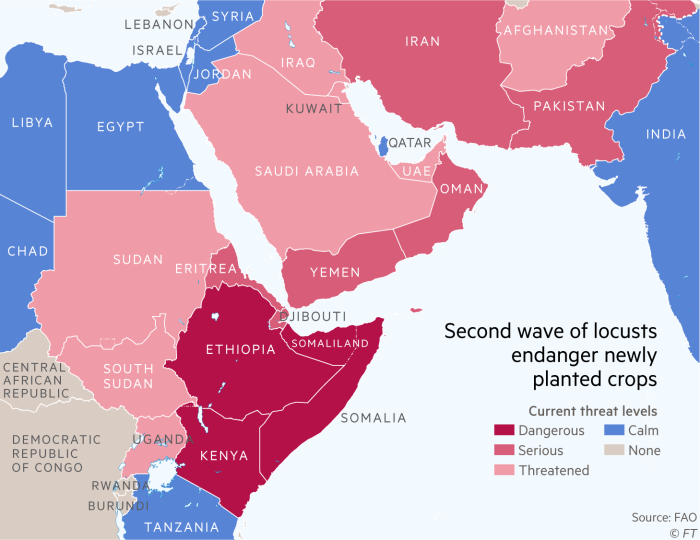Geza Ulole
JF-Expert Member
- Oct 31, 2009
- 59,062
- 79,088
Coronavirus: Tanzania’s economy resilient to pandemic impact
By David Whitehouse
Posted on Tuesday, 5 May 2020 18:07


Children near a border crossing point between Kenya and Tanzania in Namanga, Tanzania July 19, 2019. REUTERS/Njeri Mwangi
Projections by the International Monetary Fund (IMF) for a sharp slowdown in Tanzanian growth due to the coronavirus pandemic, underestimate the economy’s resilience.
The IMF predicts that growth is set to slow from 6.3% in 2019 to 2% in 2020. But the largest contributors to growth are the state’s construction, infrastructure and social services projects, says Imani Muhingo, head of research and analytics at Orbit Securities in Dar es Salaam. “There is no indication that the government will slow down in its projects.”
According to the Economist Intelligence Unit (EIU) in London, economic growth will slow to 2.7% this year. But, the EIU says, prospects to 2024 are supported by a growing services sector and planned public investments in infrastructure.
Tanzania is one of the few countries in east Africa with fiscal space to help support growth, Citi analyst David Cowan writes in a research note on 29 April.
With elections due in October, the government could easily seek to boost spending, he argues.
Daily newsletter:
“Instead of a lockdown and movement restriction as in neighbouring East African countries,
Magufuli simply asked Tanzanians to pray away the virus and left places of worship open,” says David Himbara, professor of international development at Centennial College in Toronto.
“Tanzania is sleepwalking into COVID disaster.”
But there’s no obvious sign for now that the result of the elections is in doubt.
Tanzania’s conomy more resilient to pandemic impact than others
By David Whitehouse
Posted on Tuesday, 5 May 2020 18:07


Children near a border crossing point between Kenya and Tanzania in Namanga, Tanzania July 19, 2019. REUTERS/Njeri Mwangi
Projections by the International Monetary Fund (IMF) for a sharp slowdown in Tanzanian growth due to the coronavirus pandemic, underestimate the economy’s resilience.
The IMF predicts that growth is set to slow from 6.3% in 2019 to 2% in 2020. But the largest contributors to growth are the state’s construction, infrastructure and social services projects, says Imani Muhingo, head of research and analytics at Orbit Securities in Dar es Salaam. “There is no indication that the government will slow down in its projects.”
According to the Economist Intelligence Unit (EIU) in London, economic growth will slow to 2.7% this year. But, the EIU says, prospects to 2024 are supported by a growing services sector and planned public investments in infrastructure.
- Major projects include construction of the $11bn Bagamoyo Port and special economic zone, extension of Dar es Salaam port, a new liquefied natural gas plant at Likong’o-Mchinga worth $30bn, and a new electric railway line between Dar es Salaam and Dodoma, where a new international airport is being built.
- The challenge, Muhingo says, is that the projects are mostly handled by foreign contractors and require imported capital goods.
- The EIU forecasts a rebound to 4.8% growth in 2021, and expects that public and private infrastructure investment will support annual average real GDP growth of 5.8% in 2022-24.
- Oil makes up a fifth of Tanzania’s imports, so a drop in the price of oil “is always good news as long as it doesn’t take the global financial system down with it,” Muhingo says.
- The state is in a stronger fiscal position than in the past, due to increased collection of taxes and improved efficiency in government operations, Muhingo says.
- An increased budget deficit can be absorbed by higher debt for which domestic appetite is still high. “The national debt is still highly sustainable.”
Tanzania is one of the few countries in east Africa with fiscal space to help support growth, Citi analyst David Cowan writes in a research note on 29 April.
With elections due in October, the government could easily seek to boost spending, he argues.
Daily newsletter:
- Tanzania had a fiscal deficit of only 2.9% of GDP in 2019, compared with an average of 6% for the East Africa Community.
- Tourism is geographically concentrated in the Arusha and Kilimanjaro regions, which account for just over 9% of GDP.
- So the collapse in tourism revenue may have less impact than expected, argues Cowan.
- Likewise, stalled remittances will act as a drag on Kenyan and Uganda growth, Cowan writes, but Tanzania is less dependent.
“Instead of a lockdown and movement restriction as in neighbouring East African countries,
Magufuli simply asked Tanzanians to pray away the virus and left places of worship open,” says David Himbara, professor of international development at Centennial College in Toronto.
“Tanzania is sleepwalking into COVID disaster.”
But there’s no obvious sign for now that the result of the elections is in doubt.
- Since the return of democracy in the mid-1980s, no incumbent Chama Cha Mapinduzi (CCM) president has failed to secure a second term. Citi sees no reason to expect anything other than Magufuli securing re-election this year.
- Cowan notes that mining and quarrying accounted for only around 4%-5% of GDP in 2018.
- But Muhingo argues that minerals prices are still a determinant of the shilling’s stability, and so a major factor in inflation and foreign direct investment.
Tanzania’s conomy more resilient to pandemic impact than others
